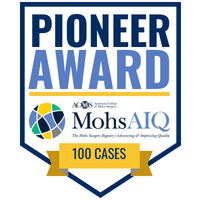
Impetigo is a common and highly contagious bacterial skin infection that primarily affects children, although it can occur in people of all ages. Understanding the causes, symptoms and treatment options for impetigo is essential for prompt diagnosis and effective management of this condition.
Causes of Impetigo
Impetigo is caused by bacteria, most commonly Staphylococcus aureus or Streptococcus pyogenes. These bacteria can enter the skin through cuts, insect bites or other breaks in the skin’s surface, leading to infection. Factors such as poor hygiene, crowded living conditions and warm, humid weather can increase the risk of impetigo transmission.
Symptoms of Impetigo
The hallmark symptoms of impetigo include:
- Skin Lesions: Impetigo typically presents as red sores or blisters on the face, especially around the mouth and nose, as well as on the hands and feet. These lesions may rupture and ooze fluid, forming a characteristic honey-colored crust.
- Itching: The affected areas may be itchy and uncomfortable, prompting children to scratch, which can spread the infection to other parts of the body.
- Enlarged Lymph Nodes: In some cases, nearby lymph nodes may become swollen and tender to the touch, indicating an immune response to the infection.
Treatment Options for Impetigo
Treatment for impetigo typically involves topical or oral antibiotics to eliminate the bacteria causing the infection. Common treatment options include:
- Topical Antibiotics: Antibiotic ointments or creams are often prescribed to apply directly to the affected areas of the skin. These medications help kill the bacteria and promote the healing of the lesions.
- Oral Antibiotics: In more severe cases or when impetigo is widespread, oral antibiotics may be necessary to treat the infection. Commonly prescribed antibiotics include penicillin, amoxicillin or cephalosporins.
- Hygiene Measures: Keeping the affected areas clean and dry is essential for preventing the spread of impetigo. Gently wash the lesions with soap and water and avoid scratching or picking at the sores to prevent further infection.
- Good Hygiene Practices: Encourage children to practice good hygiene habits, such as regular handwashing, using clean towels and bedding, and avoiding close contact with others until the infection has cleared.
Prevention Strategies for Impetigo
To reduce the risk of impetigo transmission and recurrence, consider the following preventive measures:
- Maintain Good Hygiene: Teach children the importance of regular handwashing with soap and water, especially after using the bathroom, playing outdoors, or touching contaminated surfaces.
- Avoid Sharing Personal Items: Discourage sharing towels, clothing or other personal items, as these can harbor bacteria and contribute to the spread of impetigo and other contagious conditions.
- Prompt Treatment of Skin Injuries: Promptly clean and treat any cuts, scrapes or insect bites to prevent bacteria from entering the skin and causing infection.
- Keep Skin Moisturized: Dry, cracked skin is more susceptible to infection, so be sure to moisturize regularly, particularly during dry or cold weather.
When to Seek Medical Attention
While impetigo is usually a mild and self-limiting condition, certain symptoms may warrant medical attention. If the skin lesions continue to spread or worsen despite treatment, or if new symptoms develop, such as fever or severe pain, consult a dermatologist. Rare but serious complications of impetigo may include cellulitis (deep tissue infection), abscess formation or post-streptococcal complications such as glomerulonephritis or rheumatic fever. Seek medical attention if you notice any signs of these complications.
Impetigo is a common bacterial skin infection that primarily affects children, causing red sores or blisters that can be itchy and uncomfortable. Prompt diagnosis and treatment are essential for managing impetigo and preventing its spread to others. By practicing good hygiene habits and taking preventive measures, you can reduce the risk of impetigo transmission and help keep your child’s skin healthy and free from infection. If your child has symptoms of impetigo, contact our team at Kayal Dermatology & Skin Cancer Specialists. Call our clinic in Marietta, GA, to schedule an appointment with one of our skin specialists.
Posted on behalf of
141 Lacy Street, Suite 200
Marietta, GA 30060
Phone: (770) 426-7177
FAX: (770) 426-7745
Email: kayaldermatology@gmail.com
Mon-Fri: 7:30 am – 5:00 pm







